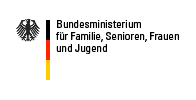Family Mainstreaming
Gender Mainstreaming and family mainstreaming
Parallel to the term Gender Mainstreaming (GM), there are also a few voices calling for “Family Mainstreaming”. What both have in common is the idea that a subject should be more strongly integrated into processes and major activities. This would accordingly mean for “Family Mainstreaming” that the family becomes even more central as a criterion of good work in politics and administration.
So far, the United Nations Department of Economic and Social Affairs and the European Parliament have developed concrete definitions of the term Family Mainstreaming and its aims.
The United Nations Department of Economic and Social Affairs includes in ‘mainstreaming the family issue’ the processes of
A standard definition of what the family is supposed to look like should, however, be avoided. The function of the family is thus seen as a place where persons undertake responsibility for each other. Family is therefore here defined by terms such as identity, responsibility and affiliation than as a marriage-centered institution.
The European Parliament has taken up the term ‘Family Mainstreaming’ in its ‘Resolution on Reconciling Professional, Family and Private Lives (2003/2129(INI)) and developed a much narrower definition than the UN. Here, ‘Family Mainstreaming’ means encouraging the Member States and accession states to analyse the impact of their policies on families, while at the same time calling on the Commission to take account of the various dimensions and definitions of the family in order to identify the social impact of the measures proposed. Thus, this would involve reviewing the anticipated impacts of family policy on various family forms and family members. According to the European Parliament, this would to enable all family members to participate equally in the tasks and responsibilities of the family. Equally, various ways should be opened up for more freedom of choice with regard to matters of compatibility and discrimination should be avoided, especially in tax policy. Here we can see areas of overlap between ‘Family Mainstreaming’ and GM, since equal rights of participation, real freedom of choice and no discrimination are the gender equality aims being pursued by means of GM.
Thus, Gender Mainstreaming goes further than ‘Family Mainstreaming’, since GM pursues the equal treatment of women and men in all areas and at all levels and is not, therefore, restricted just to family policy.
So far, the United Nations Department of Economic and Social Affairs and the European Parliament have developed concrete definitions of the term Family Mainstreaming and its aims.
The United Nations Department of Economic and Social Affairs includes in ‘mainstreaming the family issue’ the processes of
- identifying the implications for families of any planned action, including legislation, policies or programmes
- making family concerns an integral dimension of the design, implementation, monitoring and evaluation of policies
- strengthening family-centered policies and programmes as part of an integrated and comprehensive approach to development planning
A standard definition of what the family is supposed to look like should, however, be avoided. The function of the family is thus seen as a place where persons undertake responsibility for each other. Family is therefore here defined by terms such as identity, responsibility and affiliation than as a marriage-centered institution.
The European Parliament has taken up the term ‘Family Mainstreaming’ in its ‘Resolution on Reconciling Professional, Family and Private Lives (2003/2129(INI)) and developed a much narrower definition than the UN. Here, ‘Family Mainstreaming’ means encouraging the Member States and accession states to analyse the impact of their policies on families, while at the same time calling on the Commission to take account of the various dimensions and definitions of the family in order to identify the social impact of the measures proposed. Thus, this would involve reviewing the anticipated impacts of family policy on various family forms and family members. According to the European Parliament, this would to enable all family members to participate equally in the tasks and responsibilities of the family. Equally, various ways should be opened up for more freedom of choice with regard to matters of compatibility and discrimination should be avoided, especially in tax policy. Here we can see areas of overlap between ‘Family Mainstreaming’ and GM, since equal rights of participation, real freedom of choice and no discrimination are the gender equality aims being pursued by means of GM.
Thus, Gender Mainstreaming goes further than ‘Family Mainstreaming’, since GM pursues the equal treatment of women and men in all areas and at all levels and is not, therefore, restricted just to family policy.
erstellt von Administrator
—
zuletzt verändert:
02.01.2010 20:07





